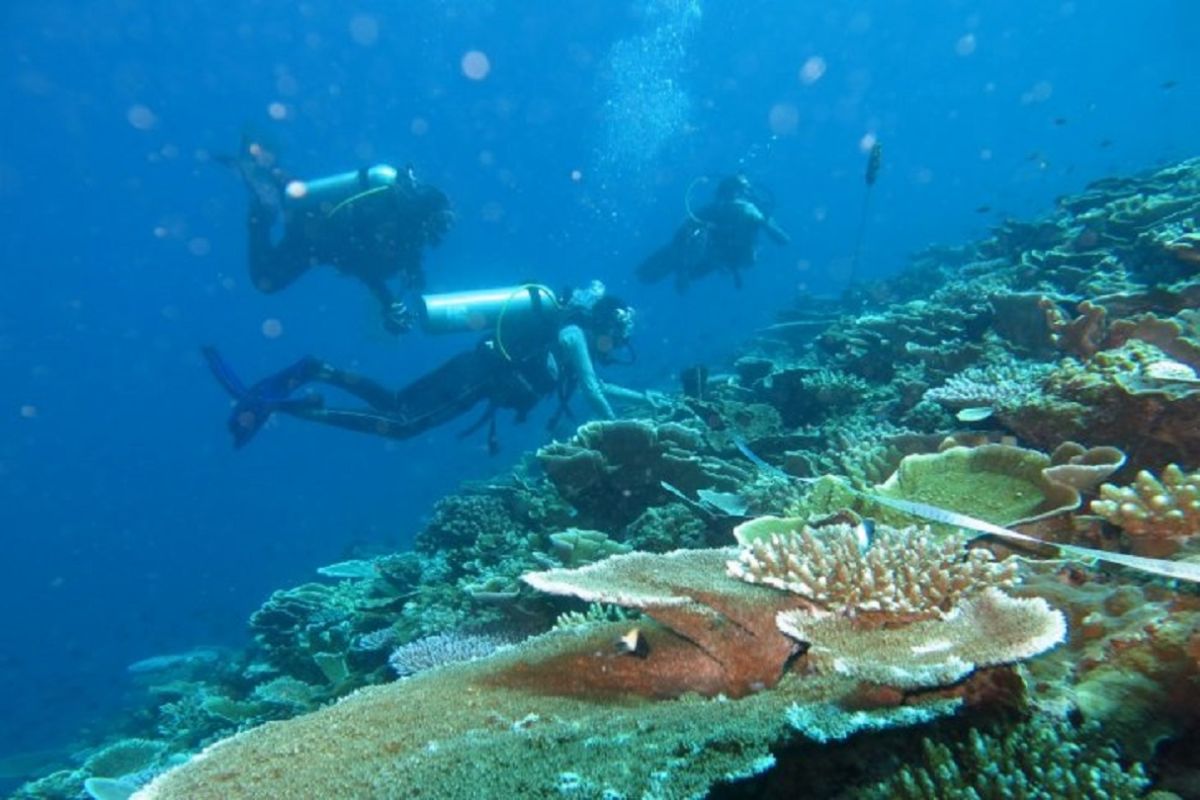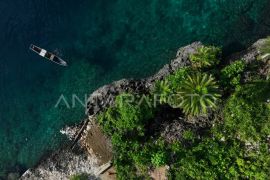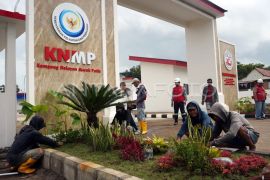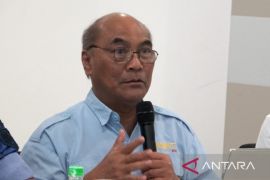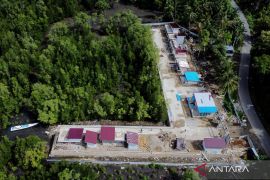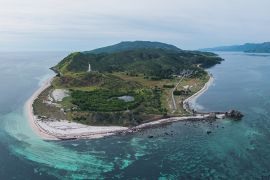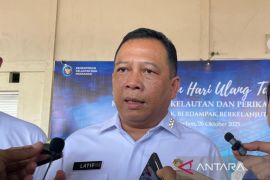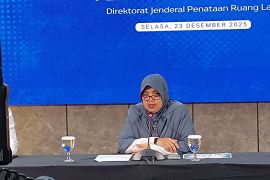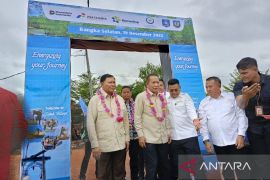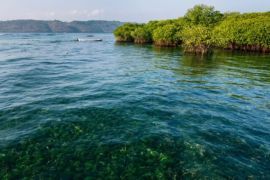The blue economy concept itself strives to realize a balance between two aspects of marine ecosystems: ecology and economy.
In other words, the blue economy not only sees marine potential as an economic commodity but also strongly emphasizes the vitality of maintaining environmental sustainability in marine ecosystems.
Bearing in mind the fact that waters constitute 71 percent of the earth's surface, and 62 percent of the Indonesian territory is also covered by waters, Minister of Marine Affairs and Fisheries Sakti Wahyu Trenggono emphasized that ecological health would be the leader of the development of the national marine and fisheries sector.
His clarity on ecology stems from the belief that if the health of marine ecosystems can be preserved well, the target of a sustainable economy can be realized.
On the contrary, if Indonesia is only focused on its economic progress, but its ecology is not maintained, then economic situations in the future can also encounter problems. For instance, the indiscriminate use of fishery resources will lead to sub-optimal growth of the economy and will not develop further on account of the depletion of fishery resources.
Trenggono also believes that the concept of a blue economy will be able to open up investment opportunities and job employment as well as boost the national economy, as fisheries distribution tends to expand into the eastern regions of Indonesia.
Hence, the potential of growing fisheries commodities in eastern Indonesia can bolster the people's standard of living there.
As three-quarter of Indonesia's territory is sea, and currently, it hosts the G20 Presidency, so it is important to note that the policies issued in the G20 can highly influence the earth's oceans.
Furthermore, Indonesia can bolster its marine and fishery product commodities, as G20 offers several opportunities. G20 is a global forum that involves 19 countries and the European Union, which contributes to 80 percent of the world's gross domestic product (GDP) and 75 percent to world exports as well as accounts for 60 percent of the world's population.
Meanwhile, according to the www.g20-insights.org website, the G20 is a platform to initiating marine governance and ensuring the implementation of marine affairs dialogue, strategy, and cooperation to pull in investment and growth in oceans and seas to be sustainable and unlock their full potential.
Moreover, the ocean is an ecosystem rich in biodiversity and provider of food, materials, energy, and others.
However, it is unfortunate that several activities in the marine sector were still assessed as unsustainable. To this end, the problems and challenges must also be faced and overcome through the results of global meetings, including the G20.
In his statement, President Joko Widodo (Jokowi) has stated that Indonesia's G20 presidency would raise the importance of the blue economy, blue carbon, and also the handling of marine waste.
The president stressed that Indonesia is ready to partner with all parties to realize a sustainable marine ecosystem. Jokowi explained that at the domestic level, Indonesia has made various breakthroughs to manage the marine environment in a renewable manner.
Some of the breakthrough steps are a measured and quota-based fish catchment policy supported by tech surveillance systems, the development of fisheries cultivation villages that is based on local knowledge for poverty alleviation, and the preservation of marine commodities of high economic value.
Related news: BRIN supports biodiversity utilization for green, blue economy at G20
Related news: Indonesia to discuss blue economy, blue carbon during G20 presidency
Marine health
Coordinating Minister for Maritime Affairs and Investment Luhut Binsar Pandjaitan stated that the Indonesian G20 Presidency in 2022 would focus on marine health issues.
In realizing that goal, Pandjaitan affirmed that his side is ready to garner a global commitment to implementing marine health restoration, which is considered to be crucial to overcome one of the several problems emerging from the climate crisis.
Minister Pandjaitan also highlighted that the Indonesian government had designated special areas, such as fish catchment zones, that apply the policy of fishing quotas. He noted that the policy aims to preserve the region's fish species.
Hence, the Indonesian G20 Presidency is considered to have clearly put forward the role of the oceans in mitigating climate change. Pandjaitan also reaffirmed the commitment of Indonesian Nationally Determined Contribution (NDC) to climate change.
As part of the focused efforts in mitigating the impacts of climate change, the government will rehabilitate 600 thousand hectares of mangrove forests targeted to be completed by 2024.
Furthermore, one of the G20 segments, the Environment and Climate Sustainability Working Group (ECSWG), which discusses environmental issues, stated that the Indonesian Presidency prioritizes sustainable recovery, land- and sea-based actions, and resource mobilization, to support environmental protection and enhance the goals of climate change mitigation and adaptation.
There are some derivative issues: biodiversity in the Post 2020 Global Biodiversity Framework; environmental recovery from the impact of land degradation and deforestation; protection of marine ecosystems in the IUU Fishing, Marine Protected Area in Antarctica, and the Osaka Blue Ocean Vision; marine debris; efficiency in resource utilization and circular economy; continuous funding to cover broader environmental issues; and the G20 Water Dialogue.
Meanwhile, Indonesian Traditional Fishers Association (KNTI) Acting Chairman, Dani Setiawan, also stressed the importance of highlighting the power of marine affairs in several sectors, especially when Indonesia hosts the G20.
According to Setiawan, the Indonesian G20 Presidency should be used to offer an understanding or create an agreement in applying measurable policies for the ease of Indonesian fisheries and marine products entering other countries, especially among G20 members.
Thus, multiregional cooperation would be encouraged to support the management of fisheries and marine resources that is expected to be mutually beneficial and sustainable. Thus, it makes the Indonesian government's blue economy concept and the G20 vision harmonious.
Related news: Indonesia pledges to conserve 32.5 million hectares of marine area
Related news: Risk-based approach used to boost development of fisheries cultivation
Translator: M Rahman, Kenzu T
Editor: Sri Haryati
Copyright © ANTARA 2022
